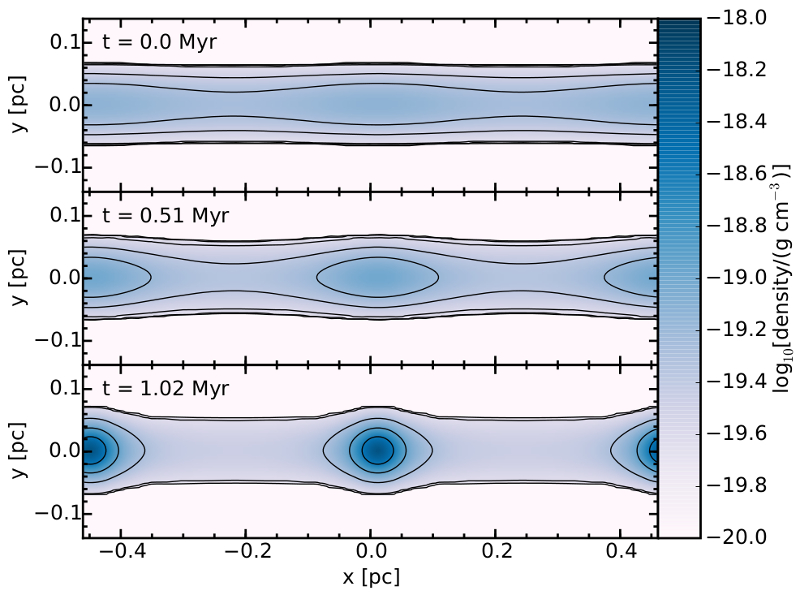| EPoS Contribution |
|
Non-linear dense core formation in filaments by gravitational fragmentation
Stefan Heigl U Munich, Munich, DE | |
|
We present a solution for the observed core fragmentation of filaments in the Taurus
L1517 dark cloud which previously could not be explained. Observations suggest that
core formation is connected to the filamentary structure of the cloud gas, but it remains unclear
which process is responsible. We show that, for certain inclinations of the filaments,
the gravitational instability process of an isothermal cylinder can account for the exhibited
fragmentation in L1517 under the assumption that the perturbation grows on the dominant wavelength.
We use three-dimensional numerical simulations with the code RAMSES, estimate observed column densities and line-of-sight velocities, and compare them to the observations. We argue that a major part of the evolution of the fragmentation is non-linear and this has a considerable impact on the evolution of the observables. Our method also allows us to estimate the external pressure in the surrounding medium. | |
 | |
| Caption: Change from linear (first two panels) to non-linear evolution (third panel) in a density cut through the centre of the filament. | |
| Collaborators: A. Burkert, U Munich, DE A. Hacar, U Vienna, AT |
Key publication
Suggested Session: Filaments |

